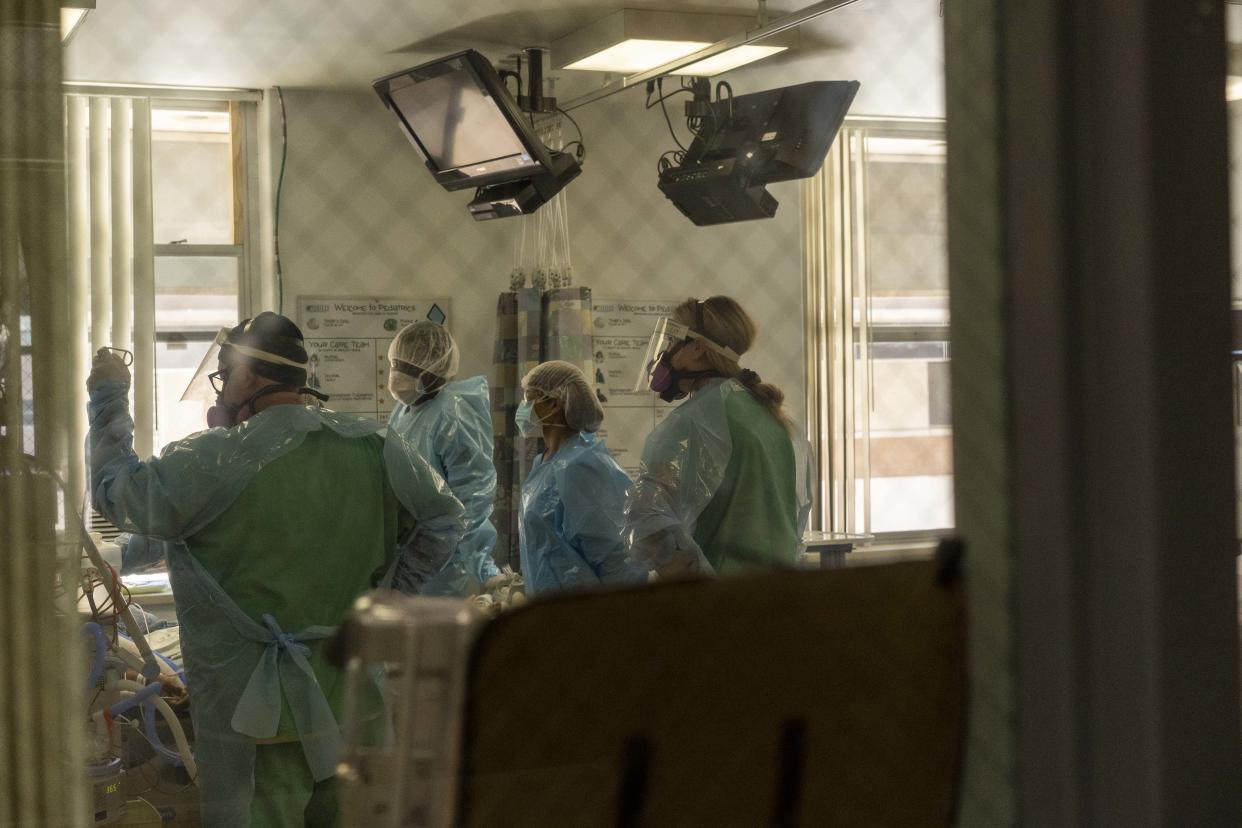Why our Phoenix hospital is struggling to serve poor patients with complex needs

Providing around the clock, comprehensive care in historically marginalized communities is critical work.
A special subset of hospitals play a particularly important role for urban areas – including right here in Phoenix – because they serve patients with more complex health care needs and who are often lower income and live in communities dealing with sustained, structural hardships.
These institutions play an essential role in the nation’s health care system, yet they face a unique set of challenges that must be addressed by Congress.
Most of our patients are on Medicare, Medicaid
Part of what make these hospitals unique is that they provide care for a notably more diverse patient population than other hospitals. At Valleywise Health, roughly 57% of outpatient care is provided to Latino patients, and nearly 10% is provided to Black patients.
In addition, more than 30% of our patients primarily speak languages other than English. Not only do these patients have higher rates of chronic health conditions, but they also must contend with numerous factors that contribute to poor health, including food insecurity, community violence and lack of safe, affordable housing. These and other “social determinants” influence the health status of the patients and communities we are committed to serve.
Moreover, many urban hospitals care for a disproportionate share of patients who are uninsured or covered by Medicare, Medicaid or other government health care programs. As a result, they often take on the burden of providing high quality care without adequate reimbursement and are subject to greater financial pressures than other types of hospitals.
Hospitals like ours aren't fully reimbursed
That is primarily because government programs reimburse hospitals and health care providers at a lower rate than private insurance plans.
For example, Medicare underpayments to hospitals totaled nearly $77 billion in 2020, while Medicaid underpayments amounted to nearly $25 billion. Additionally, many urban hospitals also provide higher rates of uncompensated care – which is care not paid for by patients, insurers or the government.
Inflation's impact:Why health care costs are about to skyrocket
At Valleywise Health, we provide care to a higher rate of low-income and uninsured patients. Medicaid and Medicare patients account for more than 85% of all visits and 65% of all discharges.
Moreover, Valleywise Health provides more than $44 million in uncompensated care every year, according to an analysis of health-care costs data by the American Hospital Association. The underpayments and uncompensated care we incur are not unique, but they do contribute to a growing instability that could make it more difficult to continue providing the range of services we offer patients and local communities.
That makes it tough to provide services
As president and CEO of Valleywise Health, I am immensely proud of the world-class services and resources we offer to help meet the medical, behavioral and societal needs of the residents of Maricopa County and beyond. That includes the Valleywise Health Medical Center, Arizona Burn Center, Level I Trauma, three behavioral health hospitals and an ambulatory care network of 12 federally qualified health centers.
We provide a full spectrum of integrated behavioral health services: family resource centers that offer educational programs such as parenting, literacy, computer and cooking classes; and women’s refugee services to help educate and empower patients and prepare expectant mothers for childbirth and newborn care.
Yet, as Valleywise Health continues to struggle with high levels of uncompensated care and underpayments from Medicare and Medicaid, preserving these programs as part of our regular offerings will become more difficult. The financial challenges we face threaten to curtail the scope and quality of services we provide to residents across Maricopa County.
A special designation could help with funding
Despite the fact that some of the pandemic-related challenges for hospitals, such as PPE shortages, have subsided, financial sustainability remains a major concern for us and many other urban hospitals who treat high levels of low-income and historically marginalized patients.
To help hospitals like Valleywise continue serving our communities, federal action is needed to support – and ensure the continued success of – these invaluable institutions. The American Hospital Association recently developed criteria for classifying “Metropolitan Anchor Hospitals,” as this special subset of hospitals is now known.
We are asking Congress to define national eligibility criteria for Metropolitan Anchor Hospitals and establish an official designation in federal law for this indispensable group of hospitals, which would open the door to much-needed federal funding to keep these critical hospitals afloat.
With additional federal resources, Valleywise and other Metropolitan Anchor Hospitals can continue to provide lifesaving services in at-risk areas, while advancing the overall health and well-being of the communities we serve.
Steve Purves is president and CEO of Valleywise Health. Reach him at Steve.Purves@valleywisehealth.org.
This article originally appeared on Arizona Republic: Valleywise Health, other urban hospitals struggle to serve the poor

